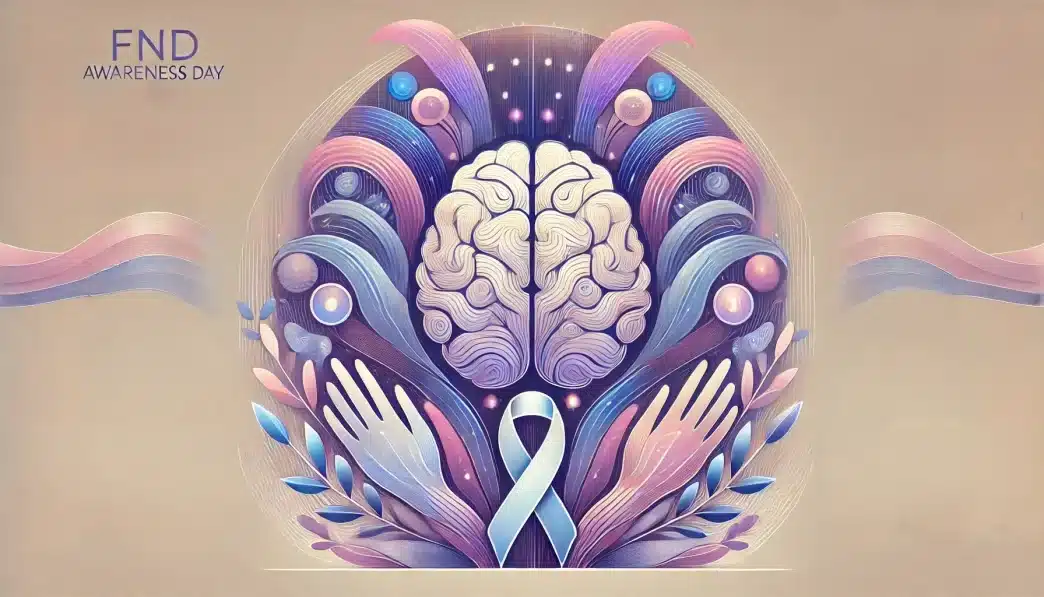What is International FND Awareness Day?
International FND Awareness Day is observed annually on April 13 to raise global awareness about Functional Neurological Disorder (FND). This day aims to promote understanding, support patients, and advance research for the prevention and treatment of FND.
FND is a condition where individuals experience neurological symptoms such as paralysis, seizures, tremors, or sensory disturbances that are not caused by structural damage but rather a disruption in nervous system function. Due to the complexity of FND, misdiagnosis and lack of awareness are common, making this awareness day crucial for education and advocacy.
History and Origin
International FND Awareness Day was first celebrated on April 13, 2013, initiated by the non-profit organization FND Hope. The organization was founded by Bridget Mildon on April 12, 2012, to provide support and advocacy for individuals affected by FND. Recognizing the urgent need for awareness, education, and research, FND Hope established this day as a global initiative to bring attention to the condition and improve support for those diagnosed.
Since its inception, International FND Awareness Day has grown into a worldwide movement, with events, campaigns, and educational initiatives held across various countries. The goal is to push for greater recognition of FND within the medical community, improve research funding, and empower individuals living with the condition.
Who Observes International FND Awareness Day?
- Patients and families who live with the daily challenges of Functional Neurological Disorder.
- Healthcare professionals working to improve diagnosis, treatment, and patient care for FND.
- Advocacy organizations dedicated to increasing awareness and funding for FND research.
- Community members seeking to educate themselves and support those affected by FND.
- Educational institutions that incorporate FND awareness into medical and neurological studies.
Slogans and Themes
International FND Awareness Day emphasizes education, advocacy, and patient empowerment. It encourages people to recognize the impact of FND and push for better medical treatment and public understanding. Common slogans include “Unite for FND Awareness,” “Shining a Light on Functional Neurological Disorder,” and “Support, Educate, Advocate.”
Colors, Symbols, and Patterns
Colors
- Blue and orange represent FND awareness, symbolizing hope and unity.
- White reflects the need for clarity and understanding in FND research.
- Purple is sometimes associated with neurological awareness and brain-related conditions.
Symbols
- Brain iconography represents the neurological aspects of the disorder.
- Interconnected circles symbolize the connection between patients, healthcare providers, and advocates.
- Awareness ribbon highlights the global effort to recognize and support those with FND.
Patterns
- Ripple effects illustrate how FND impacts multiple aspects of life.
- Puzzle pieces symbolize the complexity and individualized nature of FND symptoms.
- Wave patterns represent the fluctuating nature of FND symptoms and their unpredictability.
How to Observe International FND Awareness Day
- Participate in local or virtual events such as awareness walks, webinars, or community discussions.
- Share personal stories on social media to help others understand the real impact of FND.
- Wear blue and orange to show solidarity and support for the cause.
- Donate to FND organizations to help fund research, treatment advancements, and patient support programs.
- Advocate for medical education by encouraging healthcare providers to learn more about FND and its treatment options.
Most Used Hashtags
- #FNDAwarenessDay
- #FunctionalNeurologicalDisorder
- #FNDHope
- #FNDAwareness
- #UniteForFND
Why is International FND Awareness Day Important?
International FND Awareness Day plays a crucial role in increasing knowledge about Functional Neurological Disorder, a condition that is often misunderstood, misdiagnosed, and stigmatized. Many individuals living with FND struggle to receive proper medical care due to a lack of awareness in both the general public and the healthcare system.
By dedicating a day to raising awareness, the event helps to improve diagnosis, promote research, and enhance support systems for those affected. It also encourages individuals to share their experiences, creating a stronger sense of community and reducing the isolation that many patients feel.
The long-term goal of FND awareness efforts is to ensure that FND is widely recognized, accurately diagnosed, and effectively treated. Greater public understanding leads to more research funding, better medical training, and ultimately improved outcomes for those living with this disorder.
Features
Contact Info
April 13: FND Awareness Day
Why do you keep falling for the same type?
Read the article Lovemaps: the hidden blueprint of our love.

